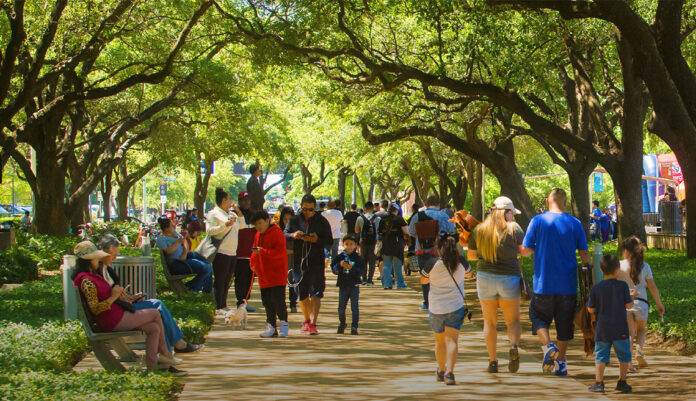Partnership led by Carilion Clinic including Virginia Tech, Virginia Clinicians for Climate Action, and City of Roanoke.
Over the next two years, the Building Heat Resilience in Southwestern Virginia through Education project, funded by the National Oceanic and Atmospheric Administration (NOAA) for $316,777 will identify and strengthen resilience pathways for dealing with long-term, higher temperatures and emergency heat waves using combined urban planning and public health approaches.
The project team, led by Carilion Clinic in partnership with Virginia Tech, Virginia Clinicians for Climate Action (VCCA), and the City of Roanoke, will enhance environmental literacy and strengthen climate resilience in Southwest Virginia by building a cross-sector urban heat resilience environmental literacy network. The network will engage with the public education system, students and families, community health professionals, and city government.
Of all weather-related disasters, heat waves cause the most deaths every year in the United States. Climate change has increased the frequency and intensity of extreme heat events. In urban areas, heat exposure and risk are highly related to the built environment and the everyday lived experiences of urban residents.
Building heat resilience, which is the capacity for communities to adapt to and cope with higher temperatures and heat waves requires a comprehensive and place-based approach. This approach includes education about risk factors, consequences of heat on health and livability, as well as potential short-term and long-term actions that residents can take to reduce their risk.
The project will extend and expand Virginia Tech’s previous engagement with Roanoke youth during a two-week STEM+ and Heat Resilience summer school program for middle school students to involve the community more broadly. Through the STEM+ curricula, students co-produce neighborhood-specific heat adaption plans that address resident concerns in the City of Roanoke and improve environmental literacy around the problem of urban heat as both an acute and chronic issue.
The project team will work with teachers and administrators in the Roanoke City Public School system to incorporate the STEM-Urban Planning-based curriculum so that more students can benefit from it. Using youth education as an entry to engage the broader community, the project will also host a family-based STEM-Urban Planning Family Summit, which will inform residents about urban planning processes and how changes to urban landscapes can make neighborhoods cooler, more comfortable, and more resilient to rising temperatures.
The project will also build capacity among health professionals and integrate them into community planning by educating and enlisting the support of health professionals and Carilion’s community outreach network to work with community groups and families; engaging Carilion clinicians to participate in an educational training to learn more about the impacts of climate and health in the region and provide tools for educating other clinicians and communities; and training Carilion Community Health Educators and Community Health Workers through the development of community education and outreach about climate change impacts on health with a focus on heat-related illness.
The urban planning and public health components to increasing heat resilience will culminate in a Heat Resilience Fair, where project participants will present ideas and solicit feedback from the broader community. The solicited ideas will be incorporated into the city’s planning processes, enabling the formalization of long-term goals for public health and the built environment with respect to rising temperatures.
More detail about the project, such as event dates and information about how to get involved is forthcoming.

